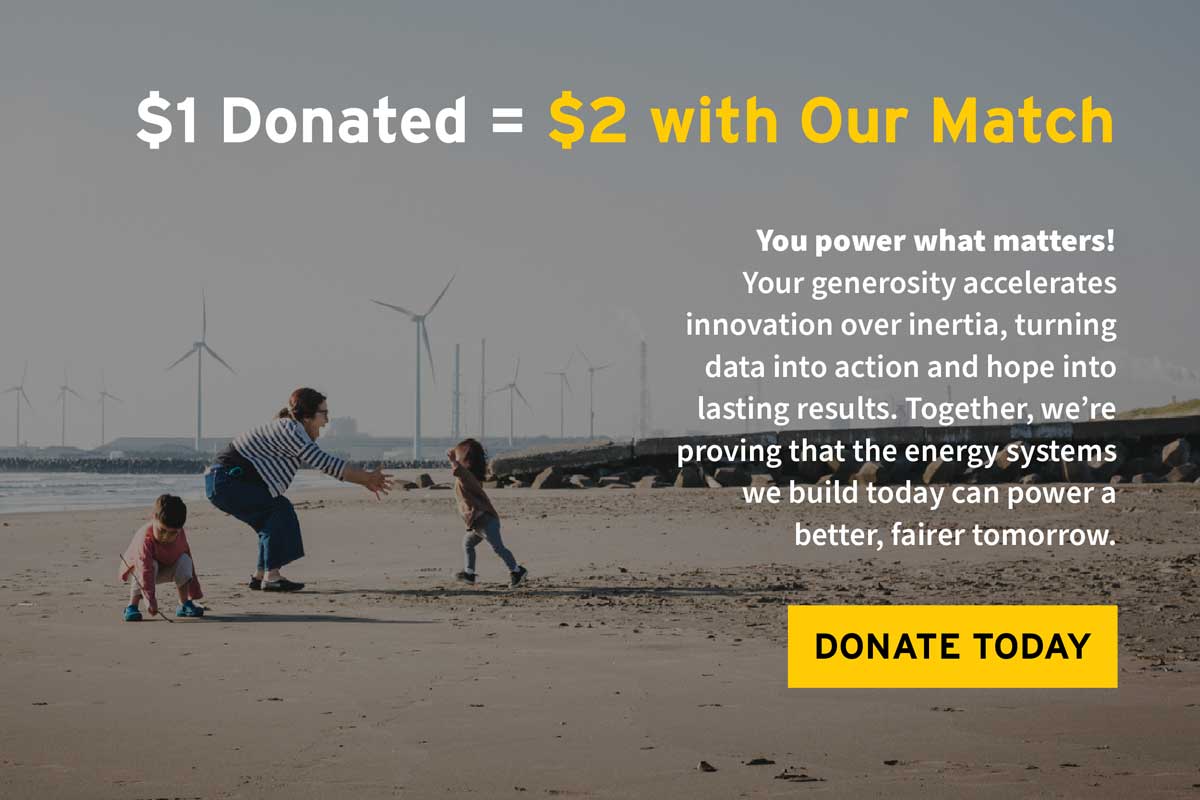
Oil Market Disruptions and Climate Action Tipping Points
While it is far too early to discuss the long-term impacts of the spread of COVID-19, in addition to the toll on human lives it has already caused significant disruptions to the global economy. As Rocky Mountain Institute focuses on promoting the wellbeing of our employees, communities, and partners, we are also looking at the dramatic impacts of this pandemic on global energy use and asking how this affects the global transition to a clean energy economy.
COVID-19 has dramatically curtailed the movement of people and goods, and this has resulted in a precipitous fall in oil demand. Simultaneously, a price war between Saudi Arabia and Russia is driving oil prices lower. Even before these latest developments, however, fossil fuels were already under long-term pressure as cleaner technologies capture the lion’s share of growth in the power and mobility sectors. This series of synchronous disruptions should be an impetus for climate-aligned corporations and investors to accelerate the shift of capital needed to fuel the clean energy transition, which can help to avoid the future disasters that will be the inevitable result of climate change.
This week the International Energy Agency (IEA) lowered its forecast for Q1 demand by 3.5 million barrels/day and its overall forecast for 2020 by 90,000 barrels/day, signaling the first potential drop in annual demand since 2009. While its forecast to 2025 suggests the disruption is temporary, many investors are not waiting to exit the space. Oil and gas companies have seen declining performance over the past five years, with Exxon Mobil (once the world’s most valuable company) seeing its market capitalization shrink by more than half to $184 billion from a 2016 high of $387 billion. Oil and gas companies now make up a smaller share of the S&P500 than electric utilities—and that’s before the oil price crash endangered $110 billion of bonds for fracking companies.
Lower oil and gas prices can cause short-term challenges for clean energy alternatives as well. But in the context of broader structural changes in energy markets already characterized by high oil inventories and a glut of natural gas supply, this drop in demand may mark a fundamental tipping point for the petroleum industry. History has demonstrated that critical tipping points occur when fast-moving challengers capture all of the growth in a mature market. When the new technology reaches about 3 percent of market share, it triggers a rapid flight of capital away from incumbents and strands assets.
This shift is already looming in the electricity sector: in 2019 wind and solar supplied only 5.4 percent and 2.7 percent of global electricity, respectively. However, preliminary data show that for the first time renewable energy comprised the entirety of the annual increase in new electricity use in OECD nations representing approximately 75 percent of global energy consumption, while fossil electric power decreased. In short, renewable energy generation grew faster than the increase in overall demand.
A similar path is set to unfold in transportation. As nations increasingly move to ban internal combustion engines and incentivize electric vehicles (EVs), automakers are rapidly repositioning around an electric future. Plummeting costs for the lithium-ion batteries underlying EVs combined with low-marginal-cost renewable electricity spells trouble for conventional light-duty vehicles, with some analysts calculating a long-term breakeven goal for oil of $10–$20/barrel to remain competitive in mobility.
Given that light-duty vehicles and other easily electrifiable vehicles account for 36 percent of crude oil demand, and similar oil-saving potential is emerging in freight trucks and even short-haul airplanes, this transition looms large on the growth prospects for the oil industry. In 2019, fossil-fueled car sales across China, the United States, and the European Union actually declined on an annual basis globally, while EV and plug-in hybrid sales grew. Market analysts, including Bloomberg NEF, are projecting that EVs will account for the majority of incremental global demand increases for passenger cars within the next five years.
How Can Climate-aligned Players Respond?
From a climate action perspective, this pandemic inadvertently delivers a downward inflection point in 2020 greenhouse gas emissions that keeps open the possibility of limiting global warming to 1.5°C. The question is whether a rebound in emissions will inevitably follow as global commerce restarts, or whether we can shift renewed demand to cleaner alternatives and avoid that rebound through a timely combination of smart policies and private-sector actions. This is the time for leading corporations, institutional investors, and policymakers to consider how the dip in carbon emissions can be made permanent through their COVID-19 response choices.
This is the first major downturn after 11 years of bull markets, and it is not surprising that another stimulus is now actively being discussed. As governments consider what kind of actions to take, there are opportunities to both invest in cleaner infrastructure and make communities more resilient to future disasters.
For example, if governments respond with fiscal stimulus and central banks employ quantitative easing, an asset buyback program focused on retiring coal plants could be a smart move. Similarly, the types of support for renewable power, energy storage, electric vehicles, and charging infrastructure envisioned in the proposed US Green New Deal (and the actual EU Green Deal) could provide clear demand signals to foster domestic spending, manufacturing, and job creation and just-transition opportunities for those stranded by lost coal and oil shale jobs.
For retail and institutional investors, a large share of the capital leaving fossil fuels in the wake of COVID-19 may not return, and that which does faces increasing risks of demand declines and stranded assets. A prolonged market downturn disproportionately affecting oil and gas can be another signal for long-term equity and asset fund investors to realign their portfolios as they seek climate-aligned growth.
COVID-19 is already a disaster in both human and economic terms, but we should also keep in mind that any moves we make at this time to shift global energy use will help to lessen the severity of future disasters. We may all be just at the beginning of this crisis, and rightly focused on mitigating its short-term effects. But we at RMI remain dedicated to the course toward a clean, prosperous, and secure low-carbon future, and we invite our collaborators and supporters to help in this work.
